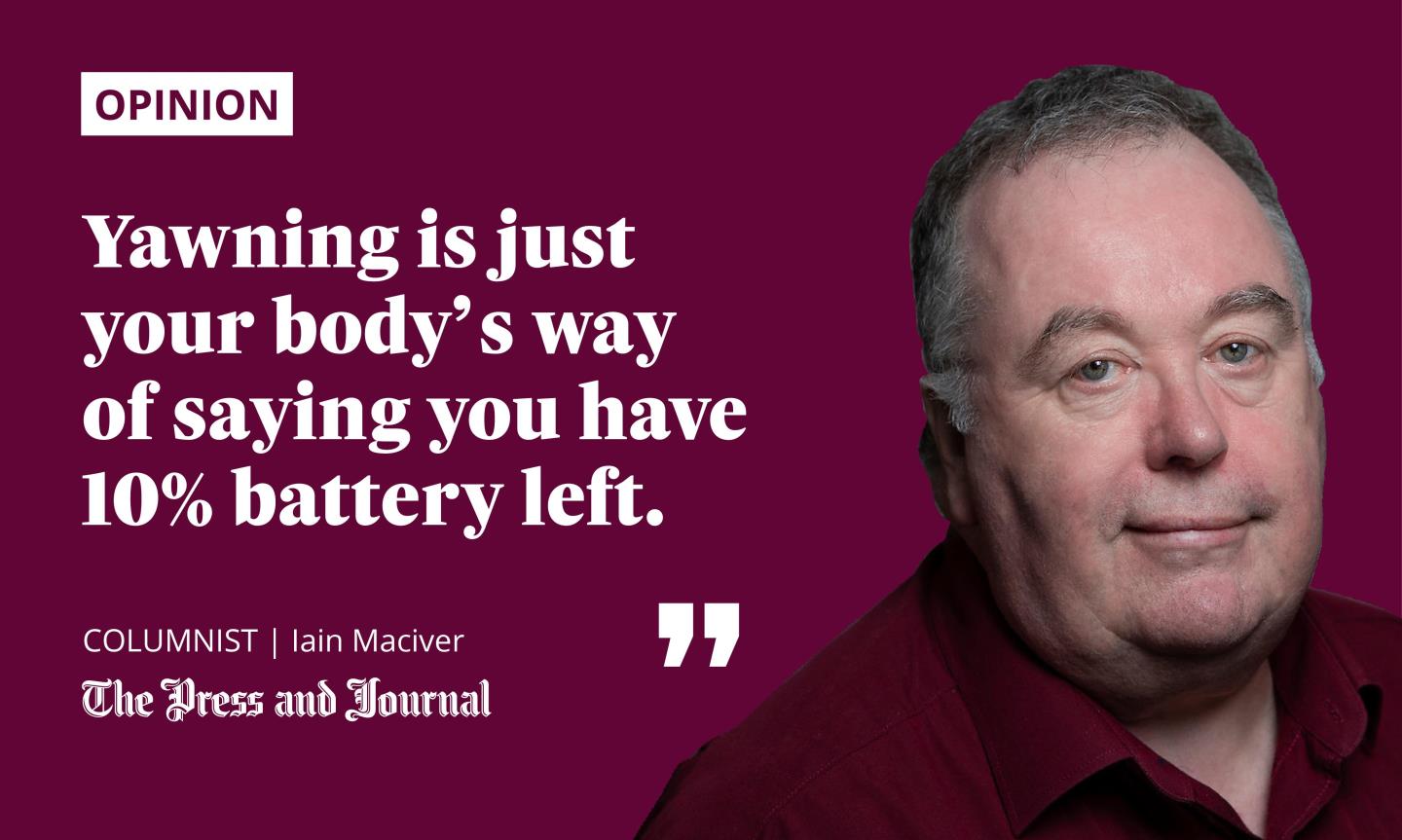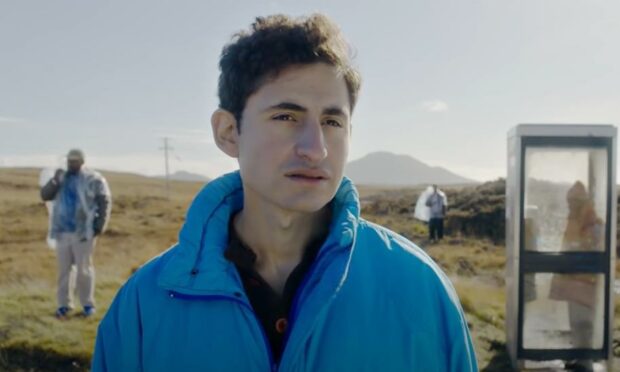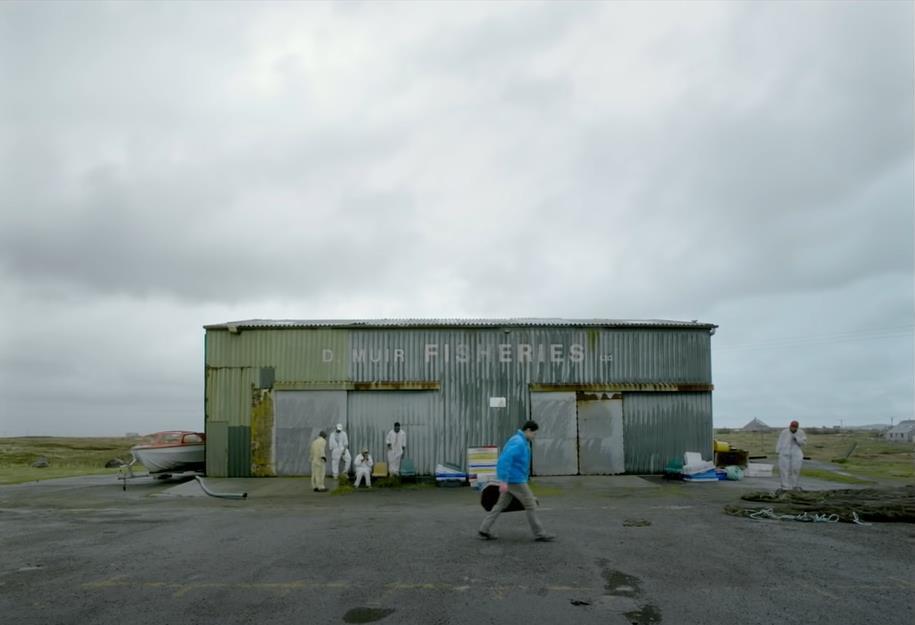Colder weather is here for the next few months, if the forecasters are to be believed.
Their predictions about bad weather are more accurate than when they tell us it is going to be sunny. Instead, we are getting hail, wind and a white Christmas. Yeah right, heard that before.

Until the end of January, it is going to be bitterly cold in Scotland, they say. That’s nonsense. It’ll probably be the end of March.
Then we are on to the military months of 2022. Can February March? No, but April May.
The nights are getting longer so there’s a tendency to spend too long in front of the box. I’ve an extra jumper on, the electric fire on, Question Time on and I begin to yawn. Yawning is not related to your age, despite what some younger people think. It is better explained by comparing it to technology. Yawning is just your body’s way of saying you have 10% battery left.
Despite the notoriously unpredictable Hebridean weather, we’ve had a lot of visitors, as in previous years. OK, maybe not so many last year.
Lewis in Limbo
Back in 2018, a lot of visitors came to Uist – some of them to make a movie. They were making an unusual comedy flick called Limbo. Well, it isn’t about dancing under a low bar, if that’s what you mean. It is about migrants on an island who are are left in limbo, waiting for their asylum claims to be assessed.
When filmmaker Ben Sharrock heard that Syrian refugees were settling here on Lewis, he decided not to make this film in Iceland, as planned, but in the Western Isles.
It is all about Omar, a young musician with potential. With his Syrian family elsewhere, he is stuck on this fictional Hebridean island. In the film, he is surrounded by very good looking extras who look suspiciously like Uist people.
Omar is played by Amir El-Masry, a star in the making, who has turned being sullen into an art form. He seems born to the part. Not everyone can pull off every type of character. I once got a part in a version of Snow White and the Seven Dwarfs. It wasn’t the one I wanted. I wasn’t happy.
Sad Omar is surrounded by grim and funny events, despite the serious situation he’s in. The reviews of El-Masry’s performance, and of the movie itself, are fantastic.
Limbo was to have had its premier at the Cannes Film Festival last year but it was cancelled because of some virus or other. Still, it won three awards at the Cairo Film Festival, including the coveted Golden Pyramid.
You can see Limbo yourself for free if you subscribe to MUBI, a streaming service – like an indie version of Netflix. It’s about a tenner a month but the first week is free, so remember to cancel on day six if you wish to keep your spondulicks.
Mystical meteorology
As shooting began on North Uist, Limbo was plagued by bad weather. Soon they were rained off. Starting a day and then cancelling was very expensive as everyone still had to be paid for that day. A local production assistant suggested they ask old Katag in the wee cottage if it was going to rain.
She had the buisneachd, the second sight, and could predict the weather, locals claimed. So the producer decided to visit her. No sooner did he knock on the door than Katag came out, looked up to the sky and announced: “Tha uisge trom faisg air làimh, a ghraidh.”
The assistant translated for him that Katag was predicting heavy rain on the way, so the following day’s planned shooting was cancelled. Sure enough, it pelted down.
That night, he went and asked her again. Katag scanned the sky and she said: “Tioram a-màireach, a ghràidh.” That meant it would be dry tomorrow, so the producer planned a full day’s filming and, sure enough, it was perfectly dry until they were packing up for the day.
The producer was incredibly impressed. That night, he knocked on her cottage door again with a present of cake and a half bottle of something warming for Katag. She came out, sheepishly, looked upwards to the heavens and shook her head as she mumbled in Gaelic.
Puzzled, the director asked: “What did Katag say? Is it going to rain tomorrow?”
His assistant said: “She doesn’t know. It seems the batteries on her radio have gone flat.”

